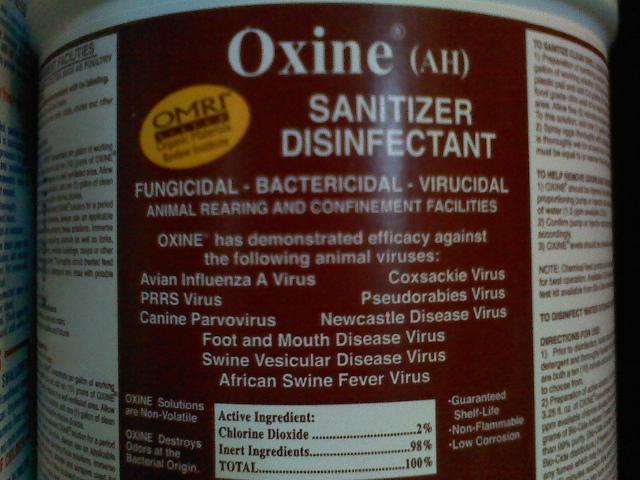I know that the general thought of most back yard participants are the eggs should not be washed except for very dirty eggs. We however, deliver about 30 doz eggs every 12-14 days to people in our community and to be honest with the scare of salmonella and everything.... Im starting to lean toward cleaning them even in my own household.
First of course, the best way to clean eggs are to not allow them to get dirty to start with. We use the deep litter method in the coops, shavings in the nest boxes and with a fairly dry run it seems to limit the amount of cleaning needed. However rainy days just cant be avoided and the pullets will get dirty feet some how.
In cleaning eggs we always want the water we use to be hotter than the egg so the pours in the shell will stay closed through the cleaning process so no bacteria can enter into the eggs itself through those pours. So to help improve this scenario we gather the eggs and immediately refrigerate them in plastic ice cream buckets to keep them cold until wash time. We do have the advantage of having a refrigerator dedicated to nothing but eggs and this makes this process more practical. This refrigerator is also emptied ever 12-14 days so that makes for easy bleach cleaning and sanitizing.
To begin the process I start with already cold eggs. My thoughts are that the shells have a protective coat on them and the eggs are protected while they are dirty in the fridge. Once 3 or 4 days has passes I will have accumulated 150 or so cold eggs in the fridge to clean. I still use reasonably hot water but I feel a little better knowing that these eggs start off so much colder than they would straight from the nest.
According to several articles I have read using about ½ teaspoon of unscented bleach in a gal of water makes for a mild but effective disinfectant dip. For years we have disinfected our very own drinking water with chlorine so I feel comfortable with this very mild mix on the outside of my eggs shells. Before I begin I will prepare this in hot water and this will be the last water the eggs touch before they dry.
Without submerging the eggs I turn the faucet on as hot as my hands can handle for an extended amount of time and dash each egg under the faucet and clean it with clean white cloth. I immediately do a quick dip of the egg in the sanitizer (after its cleaned and rinsed) and lay it on the counter to dry. Then after a few doz eggs I thoroughly wash the cloth Im using and pour part of the sanitizing water over the cloth and then start again.
I'm looking for suggestion or comments that might help provide a better or more efficient method for cleaning eggs.
First of course, the best way to clean eggs are to not allow them to get dirty to start with. We use the deep litter method in the coops, shavings in the nest boxes and with a fairly dry run it seems to limit the amount of cleaning needed. However rainy days just cant be avoided and the pullets will get dirty feet some how.
In cleaning eggs we always want the water we use to be hotter than the egg so the pours in the shell will stay closed through the cleaning process so no bacteria can enter into the eggs itself through those pours. So to help improve this scenario we gather the eggs and immediately refrigerate them in plastic ice cream buckets to keep them cold until wash time. We do have the advantage of having a refrigerator dedicated to nothing but eggs and this makes this process more practical. This refrigerator is also emptied ever 12-14 days so that makes for easy bleach cleaning and sanitizing.
To begin the process I start with already cold eggs. My thoughts are that the shells have a protective coat on them and the eggs are protected while they are dirty in the fridge. Once 3 or 4 days has passes I will have accumulated 150 or so cold eggs in the fridge to clean. I still use reasonably hot water but I feel a little better knowing that these eggs start off so much colder than they would straight from the nest.
According to several articles I have read using about ½ teaspoon of unscented bleach in a gal of water makes for a mild but effective disinfectant dip. For years we have disinfected our very own drinking water with chlorine so I feel comfortable with this very mild mix on the outside of my eggs shells. Before I begin I will prepare this in hot water and this will be the last water the eggs touch before they dry.
Without submerging the eggs I turn the faucet on as hot as my hands can handle for an extended amount of time and dash each egg under the faucet and clean it with clean white cloth. I immediately do a quick dip of the egg in the sanitizer (after its cleaned and rinsed) and lay it on the counter to dry. Then after a few doz eggs I thoroughly wash the cloth Im using and pour part of the sanitizing water over the cloth and then start again.
I'm looking for suggestion or comments that might help provide a better or more efficient method for cleaning eggs.


